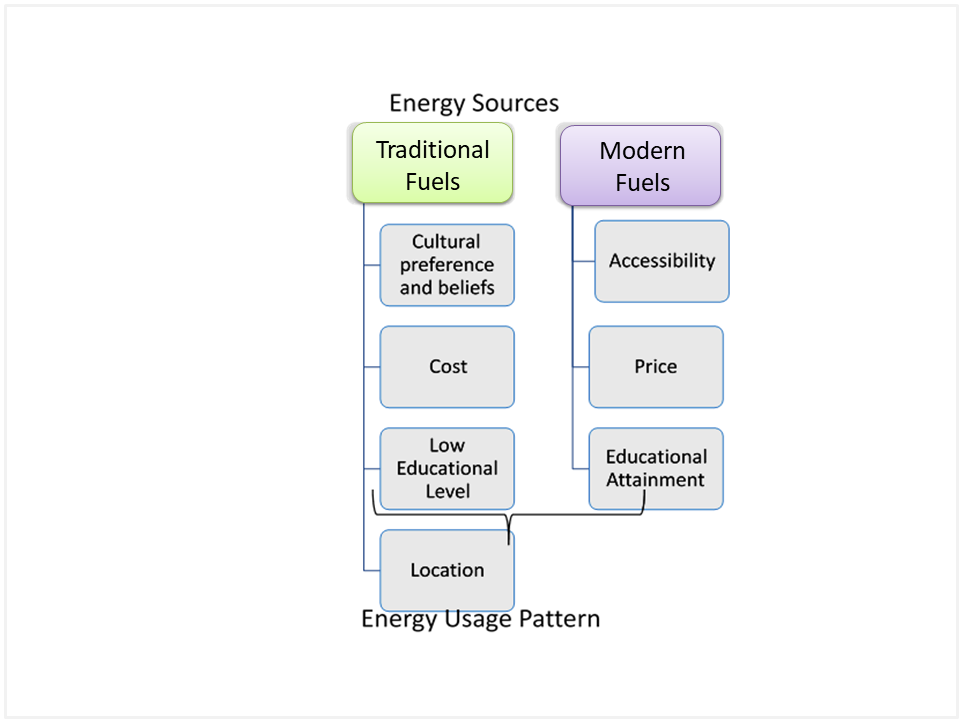Title
Households’ Energy Choice Pattern for Cooking in Ado Ekiti, South West, Nigeria
Authors
Olusola Johnson Adedeji,*a Akintan Oluwakemi Bolanleb and Ojo Oluwatosin Ajibolab
aInstitute of Ecology and Environmental Studies,Obafemi Awolowo University, Ile Ife, Osun State, Nigeria
bDepartment of Geography and Planning Sciences, Ekiti State University, Ado Ekiti, Nigeria
*Corresponding author E-mail address: johnsonolusola06@gmail.com (Olusola Johnson Adedeji)
Article History
Publication details: Received: 13th March 2021; Revised: 16th April 2021; Accepted: 16th April 2021; Published: 21st April 2021
Cite this article
Olusola Johnson Adedeji; Akintan Oluwakemi Bolanle; Ojo Oluwatosin Ajibola. Households’ Energy Choice Pattern for Cooking in Ado Ekiti, South West, Nigeria. Green Rep., 2021, 2(4), 41-49.

Abstract
This study investigated the patterns of domestic energy usage of households of Ado Ekiti and what influences their usage patterns. A multistage random sampling technique was adopted in selecting respondents from each household in the study area. Results show that closeness of fuel source, the cost of the energy type, whether the cooking energy produce smoke or not, cost effectiveness of energy type, affordability of other energy sources, satisfaction with the energy type used for cooking, consideration that cooking energy source is modern and familiarity with other energy sources apart from the one they use significantly influences the type of energy used for cooking, while safety during cooking with preferred energy source does not influence it significantly. The study also shows that accessibility, price and educational attainments are determinant for use of modern energy. Based on findings of this study, households in Ado Ekiti metropolis responded differently in their energy usage pattern. The use of gas on daily basis is high in the study area and the choice could be attributed to their level of education, age, gender, occupation, weather, accessibility, location, type of food prepared, income, available home appliance and energy price. The use of electricity and kerosene is mostly associated with its availability and high price, while firewood is associated with its cheapness, cultural preference and belief, low level of education and location and charcoal is associated with low energy price and low income.
Keywords
pattern; households; energy; cooking; Ado Ekiti